Top 5 Companies in Cosmetic Industry : Growth Factors and Future Prospects, Recent Development
RELEASE DATE: Oct 2024 Author: Spherical Insights Request Free Sample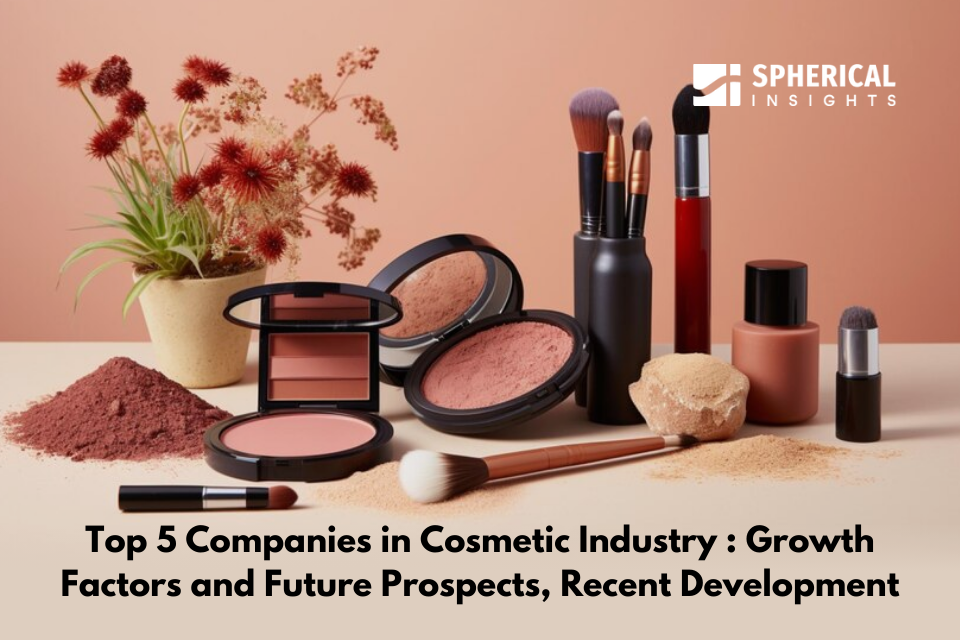
What Is Cosmetic?
Chemical components that are synthesized or obtained from natural sources are mixed together to create cosmetics. Cosmetics are used for several things, such as skin care and personal grooming. They can also be applied to accentuate natural features and cover up imperfections. Growing awareness of personal appearance and wellbeing among people worldwide is driving the expansion of the cosmetics sector.
Key Market Insights:
The global cosmetic market size was valued at USD 385.82 billion in 2023 and is projected to USD 852.72 billion by 2033, exhibiting a CAGR of 8.25% during the forecast period 2023-2033. The top companies in the global cosmetic market include L’Oréal, Unilever, Procter & Gamble Company, Estée Lauder, Shiseido, Beiersdorf, LVMH, Kao Corporation, Coty, Johnson & Johnson.
Growth Factors and Future Prospects in the Cosmetic Industry
1. Growing awareness of grooming, cleanliness, and health to drive product demand
Women are at the foundation of the cosmetics sector as the popularity of grooming and self-care has exploded globally in recent years. A busy schedule, routine changes, eating habits, and sleep cycle shifts are all contributing factors to the growing everyday concerns about one's body and well-being. Beauty products can improve the quality, purify, and adorn exterior body components, making people appear healthier and more appealing. Consequently, a number of factors, including those related to age and youth, have contributed to the strong demand for the product.
2. Market expansion through the use of environmentally friendly cosmetics
Natural products are becoming more and more popular all over the world because they are safe and non-toxic. Future demand for environmentally friendly products is anticipated to rise as a result of rising public awareness of sustainability issues. Customers are becoming more aware of the harmful consequences of chemical-based products on the environment as well as their health as a result of increased information exposure. Refrigerated BPC products have gained traction as a result of a decrease in the usage of synthetic chemicals, which mostly consist of colors and preservatives. This allows products to have a longer shelf life due to cooler temperatures without the need for hazardous preservatives.
3. Technological advancements and innovation are two major factors driving the cosmetics industry
Technological advancements and innovation are two key factors driving the cosmetics industry. Continuous R&D projects result in the production of new and improved products. The market has been greatly impacted by technological advancements in formulation, application techniques, and packaging. The industry has been greatly impacted, for example, by the development of long-wearing cosmetics formulas, cosmetic 3D printing, and augmented reality (AR) aesthetic apps for virtual try-ons. Globalization in the cosmetics sector has been enormous, with products and brands expanding globally. Global businesses are entering emerging markets, which contributes to the market's expansion.
4. Customization & individualization attract customers
The trend of personalization and customization is beneficial to the cosmetics industry as it allows firms to establish a connection with customers through customized products. By using technology, businesses may develop customized beauty palettes or skincare plans, improving customer satisfaction and fostering brand loyalty. Brands satisfy the growing demand for distinctive beauty solutions by standing out in a crowded market by catering to specific preferences. Providing customized foundation hues to accommodate a range of skin tones, for example, promotes inclusion and increases consumer satisfaction.
5. Demographic shifts drive demand for anti-aging cream and beauty products.
The cosmetics market is experiencing an increase in demand for anti-aging and skincare products as the population ages and seeks specialist treatments. Concurrently, Millennials and Generation Z, who value self-expression, are redefining beauty standards and spurring innovation. This tendency creates a varied range of inclusive products customized to the changing interests of different age groups, resulting in a dynamic market. For example, specific anti-aging serums and makeup products catering to varied skin tones show the industry's response to demographic shifts.
List of Key Companies in the Cosmetic Industry
- L’Oréal
- Unilever
- Procter & Gamble Company
- Estée Lauder
- Shiseido
- Beiersdorf
- LVMH
- Kao Corporation
- Coty
- Johnson & Johnson
Top 5 Players in the Cosmetic Industry
1. L'Oreal
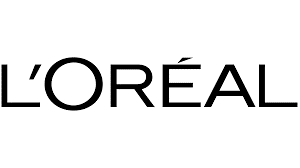
Headquarters: Clichy, France
French international personal care corporation L'Oréal S.A. has its registered office in Paris and its headquarters are in Clichy, Hauts-de-Seine. It was the largest manufacturer of cosmetics in the globe as of 2018. It has expanded its operations, focusing on cosmetics, UV protection, make-up, color for hair, scents, and hair care products. Additionally, products used and sold in hair salons are produced by the Professional Products category. Products for men and women's beauty and grooming are available in the consumer products industry and are distributed through mass market retail channels. High-end skin care and cosmetic items are marketed by the L'Oréal Luxe division in a few chosen retail locations, including department shops, perfumeries, and travel agencies.
2. Unilever

Headquarters: London, United Kingdom
Lever Brothers, a British soap manufacturer, and Margarine Unie, a Dutch margarine producer, merged to form Unilever PLC, a multinational fast-moving consumer goods business. It was established on September 2, 1929. London, England serves as its headquarters. Baby meals, toiletries, water bottles, cereal for breakfast, cleaning supplies, sauces, dairy goods, energy beverages, frozen treats, instant espresso, instant noodle soup, animal feed, medications, soft drinks, tea, and toothpaste are among the items that the company sells. It is the world's biggest manufacturer of soap, and more than 190 nations carry its goods.
3. Procter & Gamble Company.
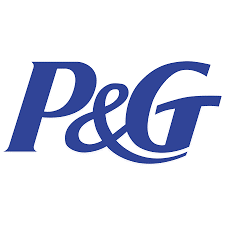
Headquarters: Ohio, United States
William Procter and James Gamble established the Procter & Gamble Company (P&G), a United States international consumer goods business with its headquarters located in Cincinnati, Ohio, in 1837. The company specializes in a broad selection of personal sanitation, personal care goods, and health products for consumers. These items are arranged into multiple categories, such as beauty, cleaning, medical care, textile and residential care, and infant, feminine, and child care. Its product line comprises food, beverages, and snacks. Its portfolio of top brands includes more than 20 that bring in more than $1 billion in sales annually worldwide, including Pampers diapers, Charmin toilet paper, Tide laundry detergent, and Pantene shampoo. Over half of the company's overall sales come from sales outside of its native territory.
4. Johnson & Johnson
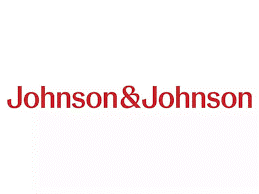
Headquarters: New Jersey, United States
James Wood Johnson, Edward Mead Johnson Sr., and Robert Wood Johnson I created Johnson & Johnson in New Brunswick, New Jersey, in 1886. Johnson & Johnson supplies hospitals, distributors, merchants, and medical professionals with its products. They use wholesalers and retail stores to market their consumer goods. Johnson & Johnson is a healthcare corporation that conducts research, develops, produces, and markets consumer goods, medications, and medical devices. They produce consumer goods like Band-Aid, Aveeno, and Tylenol in addition to medications for neurological illnesses, cancer, and other conditions. Three separate business segments pharmaceuticals, medical devices, and consumer products provide Johnson & Johnson with its profitability. The business declared its intention to split into two publicly traded businesses in November 2021. The company's pharmaceutical and medical device businesses will make up one, and J&J's consumer products sector will make up the other. It is anticipated that the separation would be finished by the end of 2023.
5. Coty
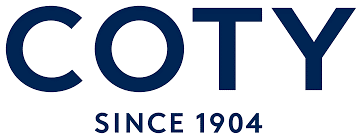
Headquarters: New York, United States
François Coty established the international American beauty brand Coty Inc. in 1904. Coty Inc. is a beauty company that offers a variety of brands in the areas of skin and body care, color cosmetics, and fragrances. The company possesses a wide range of owned and licensed brands in its portfolio. It develops, produces, promotes, and sells scents, beauty products, dermatology, nail polish, and professional and retail hair care products through its subsidiaries. Coty is the biggest fragrance firm and one of the biggest beauty corporations in the globe, with $5.3 billion in turnover for the fiscal year 2022. Hypermarkets, pharmacies, grocery stores drugstores, mid-tier department stores, conventional food and pharmacy retailers, and specialized e-commerce retailers are the main distribution channels for its mass beauty brands. It distributes, advertises, and sells its goods in more than 121 nations and territories.
Recent Development
- In September 2024, L'Oréal announced a tri-party partnership with worldwide specialized producer Evonik and biotech developer Abolis Biotechnologies to facilitate the research, development, and production of novel and ecological components for cosmetics and other applications.
- In December 2023, the Boston-based venture capitalist Yellow Wood Partners LLC ("Yellow Wood"), which specializes in investing in consumer brands and businesses, revealed a binding bid to purchase Unilever's (NYSE: UL) Elida Beauty portfolio of brands.
- In November 2023, L'Oréal unveiled its most recent technologically advanced products and collaborations. The innovations included a record of 18 beauty technology developments, ranging from inclusive, environmentally friendly, and customized beauty tech solutions to testing and coaching tools.
- In March 2023, Shiseido Asia Pacific Pte. Ltd. has entered into an innovative distributing collaboration agreement with International SS Beauty Brands Limited, a division of Shoppers Stop, India's foremost luxury fashion and cosmetics destination, to grow its brand presence in India.
- In May 2022, a leading supplier of hair wellness products Nutrafol has entered into a deal with Unilever to purchase the majority of the company.
About the Spherical Insights & Consulting
Spherical Insights & Consulting is a market research and consulting firm which provides actionable market research study, quantitative forecasting and trends analysis provides forward-looking insight especially designed for decision makers and aids ROI.
Which is catering to different industry such as financial sectors, industrial sectors, government organizations, universities, non-profits and corporations. The company's mission is to work with businesses to achieve business objectives and maintain strategic improvements.
CONTACT US:
For More Information on Your Target Market, Please Contact Us Below:
Phone: +1 303 800 4326 (the U.S.)
Phone: +91 90289 24100 (APAC)
Email: inquiry@sphericalinsights.com, sales@sphericalinsights.com
Contact Us: https://www.sphericalinsights.com/contact-us